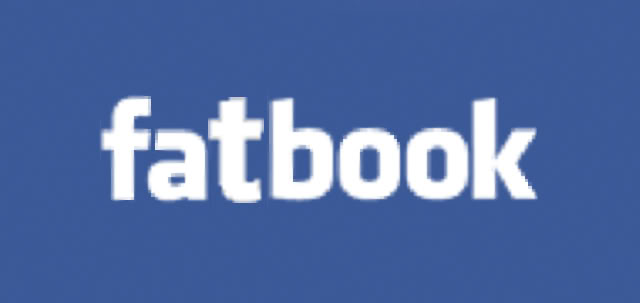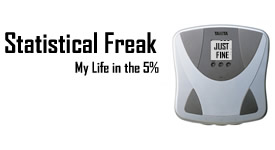Silent Suffering —
Trigger Warning: This post includes an interview with the clinical director of an eating disorders clinic and there are clinical discussions of EDs and their effects.
Yesterday, I announced the impending death of Phase 1, along with the acquisition of some rather damning audio tapes of my conversations with three members of Children’s Healthcare of Atlanta (CHOA). I will be releasing the tapes in the near future as my final comments on this whole ordeal.
But these tapes aren’t the end of the Strong4Life conversation by any means. Once the billboards come down, we then have to speculate as to the long-term damage they may cause. On the flip side, CHOA is banking on S4L “reversing” the obesity trend in Georgia. In its February 16 press release, CHOA says, “Children’s goal is to move the state of Georgia out of the top 10 list for childhood obesity by 2016.”
That’s one metric by which we can measure the success, or failure, of Strong4Life, and I firmly believe that they will not budge their rates in four years.Most states have anti-obesity health and wellness campaigns similar to what Strong4Life offers in terms of education and resources. The main difference has been the Phase 1 campaign, and CHOA’s belief that by using such harsh ads they will “shock” families into action.
Therefore, we’ll get to see first hand whether this experiment was worth the grief it caused.
But there’s one metric that I’m betting CHOA won’t be tracking: eating disorders.
In my conversation with Tim Whitehead, CHOA’s Vice President of Marketing and Communications, he explained how they had two marketing surveys that showed they weren’t harming children. So, I asked him if anyone from CHOA contacted any of the ED clinics in Georgia to find out if they had any negative experience with the ads.
“We haven’t,” Whitehead said, “and we haven’t heard from them.”
Apparently, if you create an ad campaign that is essentially a social experiment on the effects of stigma and shame on obesity rates, then you are under no obligation to proactively seek feedback from eating disorder clinics. And if you don’t hear from those clinics, then clearly your ads aren’t causing any real harm.
Tim continued, “We’ve heard from some of the national ones who sort of say, ‘Yeah, these things cause, lead to, eating disorders.’” Ah, so they haven’t heard from any of the local ED clinics, but they have been contacted, and condemned, by the National Eating Disorders Association, the Binge Eating Disorder Association, the Academy of Eating Disorders, and the International Association of Eating Disorder Professionals.
As with its response to the NIH condemnation, Strong4Life is quick to distinguish between national organizations and what they are seeing in Georgia, which is totally different from the rest of the country, so they can do as they please.
“Our response has been to listen, to see when they have sort of a credible point, really think about it and build it into our approach,” Tim asserted. “But we haven’t seen any, have not talked to anybody in Georgia, that says, yeah we’re seeing people that are really affected by this.”
Okay, so let’s break this down: since Georgia’s ED clinics have not spoken up and the national ED organizations aren’t in Georgia, then they see no reason to be concerned about the risk of stigma leading to disordered eating behaviors, including anorexia, bulimia and binge eating disorder.
I mean, they’ve got their own market research, so why read the existing research that indicates a positive link between weight stigma and eating disorders? (PDF)
A week before I had the first of my conversations with CHOA, I decided to contact Atlanta Center for Eating Disorders (ACE) to find out for myself whether the ads affected their patients. I spoke with Dr. Rick Kilmer, Clinical Director for ACE, with the intention of rolling all of this into a freelance article. Instead, I’ve decided to post his relevant comments (almost all of our conversation) here.
I only wish that CHOA had taken the time to speak with Dr. Kilmer for themselves to learn how their ads affect those who are fortunate enough to have a place like ACE to turn to for help. But ED clinics can be prohibitively expensive, upwards of $30,000 for residential treatment*, and according to a December 2010 article in the New York Times, insurance won’t cover most ED treatments:
Yet most insurers will not cover long-term treatment, and some routinely deny adequate coverage of eating disorders on the grounds that there is not enough evidence on how best to treat them, said Lynn S. Grefe, chief executive of the National Eating Disorders Association.
While Dr. Kilmer can speak with authority on behalf of those fortunate enough to have the means to pay for effective treatments for EDs, there are already thousands of teenagers suffering from EDs who cannot afford treatment and who must face the shame and indignity of the S4L billboards on their own.
As background, Dr. Kilmer has been working with obese patients for 30 years and with eating disorders for 20 years, so he is well qualified to comment on the effects of stigma on eating disorders.
I’m just going to post the full interview transcript and let Dr. Kilmer’s words speak for themselves. I will bold key passages to emphasis their importance.
As a professional in the field, one thing I’ve learned is, you have to guide and contain the advertising staff and the PR folks because they don’t know the research about what helps and what hurts. Their field is to get attention and to get people to notice ads and so forth. They don’t have the knowledge of what changes behaviors, or the collateral damage that can take place with certain strategies. I’ve learned this in the field that even misguided, well-intended advertising folks can come up with provocative and powerful ads which don’t help and actually cause damage. And it’s our job as the medical professional folks to guide them and say, “No you can’t do that.”
We had, in the early 90s, a pretty high-powered advertising firm in town wanted to do some posters for us to do public service. And so, without our input, they just did these very powerful three posters that were very powerful, provocative, and gave us several thousand copies of them. And I think they went on to win awards in the advertising industry, but we never used them. They sat in a closet. They were so powerful and so graphic that they had an unintended consequence with patients. They didn’t know that patients would look at it and go, ‘That one teaches people how to purge and that one has an anorexic model who we’re all going to compare ourselves to.” So, we couldn’t use these very expensive posters because they were too triggering and had negative reactions.
Another situation: I had an advertising person come to me and say, “Here’s an ad. How many grits does an anorexic eat for breakfast.” I had to say, “You don’t use humor.” I know that advertising people use humor, we don’t use humor to talk about life-threatening conditions or illnesses. It’s inappropriate. It doesn’t help. That would create a lot of problems for people.
They don’t know the research, which we found out in the 90s, which was when you go in and do prevention talks at schools and you give graphic, honest, “These are the symptoms of eating disorders and these are the medical consequences that will happen” — instead of that helping, children who had never had ideas of purging, or using laxatives, were introduced to them. So, we actually caused eating disorders instead of preventing them.
Our research showed we had to go to a wellness approach. Go into schools and you say, “Move your body, feed your body, love your body, self-care, acceptance.” That’s a message that they take home and could have good consequences. We have a lot of research about what helps and what hurts. But the main one that I’m really wondering about with Strong4Life is whether certain people who didn’t have the research or the clinical judgment were making decisions, and they really didn’t take the feedback from the clinicians about what would be some collateral damage to using a shock and awe approach.
As far as what am I hearing from the patients: with our binge eating patients, there’s no one who has not been publicly humiliated or been shamed or who has been criticized for their eating or for their size, and none of them benefited from that and saw it as a good experience. People come to treatment for different reasons. They don’t come because someone called them names and shamed them. A lot of our patients are very upset by seeing society endorse it being okay to shame large kids and their parents. They see that as extremely instructive and hurtful and in no way helping motivate the children or their families to change.
The second reaction we’re getting is that the patients who are in recovery for bulimia or anorexia, are trying to let themselves eat normally, perhaps get back to a normal weight, they say they’ve experienced shame in their past and most people with an eating disorder have had some kind of teasing or taunting in their background, and they’ve made this decision, I’ll never go through that again. And so the way they go through that, I’ll never be normal weight, I’ll never let myself be a large size and be a target. So when they say that, oh now society has endorsed the public criticism of larger people, they’ll say, “See, that’s why I don’t want to get better because that will happen to me again.” It’s reverberating through the patients with eating disorders in different ways, but it’s not being helpful in any way.
There’s this school of thought that fear and shame can motivate people to shame. Well, it motivates people, but it motivates people to isolate and medicate. No one says, “I’m glad that teacher called me stupid and lazy, that was really helpful.” What people do is they then avoid the people and the places where they’ve been shamed and humiliated. And they isolate and they medicate. And if it’s with food, then it causes more of a problem. It doesn’t involve positive change.
Another thing that motivates is desire and hope. So, for people who have been encouraged to see there is another way than what you’ve been doing, there’s another possibility and you can get there. If that gets internalized, then those people will want to change and keep changing, even on their own. So, the idea that if we mistreat people enough, then they’ll do the right thing is ineffective and misguided. If a boss or a coach or a teacher uses fear and shame to motivate, it may work temporarily until they leave the room. And then there’s rebellion and chaos. No one wants to do what they’ve said. If the teacher or a coach or a boss uses teamwork and hope and desire and positive motivation of what could happen and they leave the room, then people keep working, keep trying. This idea that if we call children fat and we shame them and their parents, then they will do the right thing. It’s understandable, but it doesn’t work, and all the research shows that it doesn’t work.
There’s an established body of research that the more people internalize shame, the more they have learned helplessness, the less likely they are going to be to try. There’s no good outcomes from bullying. That’s pretty well established.
If you think about troubled relationships and marriages… we somehow think that if we criticize and nag and fuss at our partner enough, then they will give us the loving treatment that we want. We know that people try that over and over again, “Well, I guess I just have to be more critical and more judgmental and more humiliating, and then I’ll get the good relationship I want” and obviously that just doesn’t work.
People just don’t want to be around someone who is judging you and criticizing you and calling you names. That’s another piece that is upsetting to the patients that I see at ACE is that it’s almost like the billboards and the campaign is saying it is okay to be weightist. Prejudices of racism or sexism, yeah, those are bad, but weightism is fine. If you want to publicly comment on a larger person’s size or what they eat, that’s perfectly okay. In fact, you’re doing it for their own good, so we should all be critical and pass judgments and tell these people what we think, and that that is acceptable. That is an acceptable prejudice, and that it will be helpful. That’s pretty scary and traumatizing for people. It’s almost encouraging and enabling bullying to escalate.
If these people, these doctors and these billboards, are saying it’s okay to call kids fat and make them feel bad about themselves, how would it not happen more in the school yard, how would it not happen in a family where, “Well, mom says I’m not supposed to call you fat, but these folks say it’s a good thing, so I guess I’ll do it more frequently.” That’s not helpful.
It’s certainly making a lot of people feel bad and it’s making people feel bad about themselves and it’s demoralizing, and it’s upsetting. Shame causes people to isolate and self-medicate. It’s not like they’re going to go and talk about it. If anything, if it’s having these negative effects on self-esteem and behaviors and people are feeling more hopeless because of it, we’re not going to know that because they’re keeping it to themselves. The shame of “You are fat and so you are bad” versus behavior, such as “Play with your children outside for 10 minutes every day.” Completely different messages, completely different feelings. I think it would have the unintended effect of worsening behavior instead of making it better.
It just doesn’t bear itself out in common sense or in the literature that if you tell someone they’re a bad parent, that then they’ll be a good parent. You can tell them what they can do that would be helpful. And that can change behaviors better than “You suck.” Where do you go with that?
The idea that these parents are not concerned with hearing their children be teased at school, with seeing them not want to go swimming because of the comments from other people, comments from strangers who tell them what they shouldn’t be eating. No one learns anything when you say, “Oh by the way, your child is fat. I know you appreciate me helping you right now.” They know there’s a problem.
What do we do to help them with their problem? Just calling them names or telling them that their child’s future is bleak leads to hopelessness. Whereas if you tell them information that could be helpful, then that could be a good use or $20 million. If you say, “Cook with your children from scratch.” If you say, “Spend 10 minutes outside every day with your child.” If you say, “Have family meals five times a week and turn off all electrical devises, including phones.”
If you have information that could be helpful, then I think that would quite useful. There is information that can change the situation. There are ways to encourage and motivate. I applaud them for addressing the issue, but I wish they would move on to the next phase, which is how to be positive and how to be proactive and how to be constructive, and giving parents good information that is useful. I’ve talked to Stephanie Walsh and she’s a wonderfully-committed clinician, so it is a little baffling with all that’s been generated, the backlash and how destructive this is, why they’re not moving on to the phases of “Okay, let’s get constructive and helpful.”
There’s a lot of research that suggests that it’s more of a fitness than fatness issue, and that people can be fit at different sizes and shapes. You just go and see a marathon and see somebody whose a larger person running 26 miles and obviously they’re in a lot better shape than the rest of the people. I think that if we could focus on the fitness and the factors which we know can be helpful for health, that would be a good thing.
Let’s get on to the positive messages, to educate people on how to be healthy and to believe that they want to be healthy and to encourage them to move their bodies and feed their bodies and love their bodies and respect their bodies, and to move away from shame-based motivation to desire- or hope-based motivation, which we know works. And to listen to the community and to work together and take on an issue that everyone’s concerned about.
*This is not the cost of treatment at ACE and I do not have an estimate of their services.























It’s really too bad that CHOA didn’t consult with Dr Kilmer before they started this campaign and that they didn’t put him in charge of the advertising team who came up with their “shock & awe” plan. I think he could have come up with something that would have gotten the attention of parents without hurting kids in the process.
Why doesn’t this guy have his own TV show instead of Dr. Oz?
He so should! The only reason I think Dr. Oz has a show, is because of his ties with Oprah.
Theresa, because he’s not saying something that will make other people feel good about. You know, if you say, “Bad fatties! Lazy people who do nothing but sit on the couch eating donuts and potato chips all day long!” people will feel justified in their bigotry against fat people.
When you say, “It’s not like that, there are so many reasons a person is fat, so many reasons a person has an eating disorder,” then people might have to feel compassion.
And well, you know, “they” aren’t of “our” tribe, so why waste compassion on them. It’s better to listen to Dr. Oz and revel in our hate of ALL fatties (well, you know, except our friends, because THEY are different, they aren’t REALLY fat, or they really have a medical reason to be fat, unlike all the other fatties in the world…).
This is a wonderful and insightful interview! Few people in the health care professions seem to be able to admit that individual medical interventions have little impact on weight, yet improving access to various social and basic human needs (such as steady sources of income, respect-and secure social status-ready access to safe housing, reliable transportation, supportive emotional environments, etc), which are less tangible and more difficult to measure, wield significant influence on health outcomes. Social interventions such as these mentioned, however, do not line the pockets of health *care* providers. We live in bizarre, sorrowful times when bullying is openly or silently sanctioned by health care professionals (with few brave exceptions, such as Dr. Kilmer and others you have noted), and when research reports about the social determinants of health (and health inequities) repeatedly are ignored or discounted by those same professionals. My own family doctor (bless him!) has testified before our state legislature about the negative impact on health of factors such as unemployment, loss of secure housing and medical insurance, and other socioeconomic barriers to health and wellness. Thank you for continuing to underscore these links between, for example, social stigma and health inequities. I applaud you and offer gratitude for all compassionate health care providers such as Dr Kilmer.
This really needed to be said. The people behind these anti-obesity programs don’t realize the potential harm they cause to people suffering from ED’s who see and hear these awful advertisements.